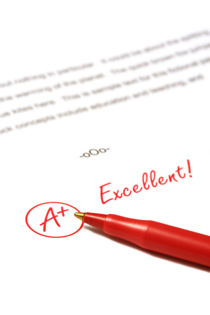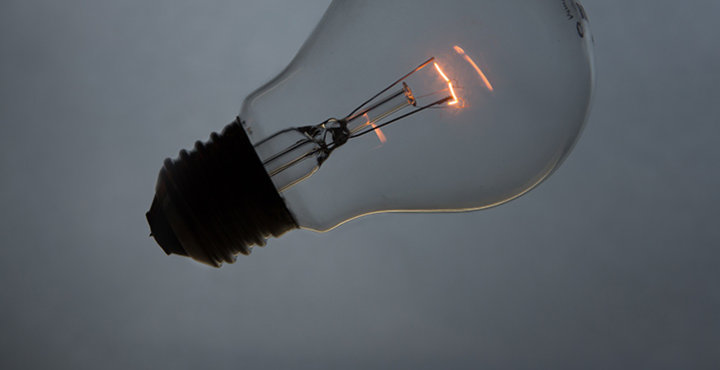Plain talk on what your professor wants

she wants—a clear, concise paper.
It's 2 a.m., and you've finally finished writing your scientific paper. Your bed is calling to you, luring you to enjoy a few hours rest after all of that hard work. But a second voice is speaking as well, and it is saying, "You're going to receive the same mediocre grade you always receive. Come on, keep working. Make it better." Now you're torn. You'd like to improve your scientific paper and lab report writing but you don't know how, so you're tempted to just hit the sack. You've heard professors describe excellent scientific papers using such amorphous descriptors as "it sparkles," "lovely voice," and "flows beautifully," but what do those things mean in plain English? Read on to get the inside scoop from our scientific editing experts.
Organization requires a clear thesis
Your thesis statement is the starting point of a well-organized scientific paper. Everything that "flows" has a beginning, and your paper can't "flow" if you don't tell the reader what the paper is about and where it's headed. The thesis generally appears toward the end of the introduction and serves as a beacon to direct the reader into the dark abyss of what follows. When your professor knows where you're headed, it's easier for him or her to pick up on the arguments you present.
Reread what you've written and ask yourself: What was I trying to prove? What points did I make? Does my thesis give the reader a map of what I'm setting out to do? If you can't answer these questions, chances are your professor will be equally stumped regarding your intentions.
Mixing up the evidence and the analysis
Whether you're writing a scientific paper on alternative energy or molecular biology, you're bound to have a mix of fact and commentary. Finding the right ratio is essential to writing a scientific paper that meets your professor's standards. In the humanities, great essays usually have two or more sentences of analysis for every sentence of fact. If you're writing a paper for the social sciences, invert this ratio and include twice as much fact as analysis. In the sciences, there is generally little personal analysis, but your professor may direct you to do otherwise. Is this a hard and fast rule? No. It's a general editing guideline that will help teach you how to write an essay.
Syntax: Clarifying your point
Syntax is a fancy word that deals less with what you say and more with how you say it. Most scientific papers suffer from a glut of unnecessary words. If you want your paper to ring true with the professor, don't slow him down with linguistic speed bumps: avoid wordiness!
Here's an example of a wordy sentence:
It has come to this researcher's attention that the results of this experiment are inconclusive, thus calling for the need for further investigation and more detailed, rigorous testing of the study's hypothesis.
Here's a revised version:
Additional study is needed to verify this hypothesis.
The second version contains 24 fewer words while making the same point. Reread your paper and try to cut at least five words from each sentence (more if you can). Pay particular attention to short words, such as the, of, as, and a, as well as weak verbs, such as make, do, has, and want. Nine times out of ten, there are better choices.
Another aspect of syntax involves the types of sentences you write: long versus short; simple versus compound; and subject opener versus non-subject opener (in the former, the first word/phrase is the subject of the sentence, while in the latter, the first word/phrase is a clause). Include a variety of sentences in your paper to maintain the reader's interest. Whenever possible, avoid having more than two of the same type of sentence in a row.
Expand your vocabulary
This is also known as diction or word choice. Using the right word at the right time is always impressive. You must be careful, however, to pick an appropriate word. Consider these synonyms for happy: content, glad, pleased, cheerful, delighted, exultant, ecstatic, and blissful. While the word blissful sounds better than pleased, the two aren't interchangeable; they simply do not have the same connotation, that is, each word carries a different emotional charge. Also, remember that more syllables are not inherently better. The student who wrote about the "benevolent doughnut" amused the instructor but still earned a poor grade.
The editing process is never over
Remember that there is no such thing as a final draft, only the version that exists when the deadline arrives. Don't go to sleep just yet. You can improve your writing if you focus on these core elements of a great scientific paper. Can't keep your eyes open for another minute? Then submit your paper to one of our essay editors for a professional opinion 24/7.










